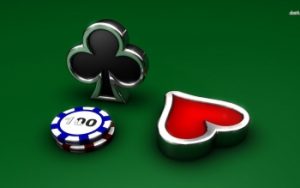
Another cognitive shift worth mentioning is that of incapacity. This shift refers to two things: our inability to process very large or very small numbers by intuition and our inability to calculate probabilities accurately. In poker, such errors can be fundamental. The most problematic example of how we are affected by the inability bias is through exploitation.
People tend to overestimate big pots. They also tend to assume that if they win or lose big pots, it defines how they manage to exploit their opponents. The fluctuations in big pots really don't say much. The best players know that big edges are usually made up of many small and medium-sized pots, which usually mean even more than big pots over a longer period of time. Your edges in the small and medium pots come together more slowly, and the mind is not naturally designed to intuit this.
The mind is also very bad at calculating risks and rewards in low-return situations. For example, in a situation where you bluff a 3/5 pot river with a miss'intu draw, and your opponent realizes your bluff on the river 60% times, your mind will make you think it was a bad move. This is because you lose more than half of your attempts, which means that on more than half of the bluffs, the mind has a negative experience. Since this is the way things work, the mind is not very skilled at sorting out these negative experiences, so you don't feel better or worse regardless of the odds or EV margin you tried to capture. It's just that the mind is not equipped to deal with such numbers, but that's what poker requires of us.
The reality is that to make a 3/5 pot bet, you need 37.5% fold equity, so if your opponent folds 40% moves, you lose your EV. In order to be able to regularly capture low-return EV decisions, you need to train your intuitive subconscious mind to become more identified with a conscious understanding of odds and probabilities. If you put yourself more often in situations where low-return EV decisions are made and where you are more likely to lose, your subconscious mind will eventually start to understand how things work. This is one of the main obstacles in poker - the challenge is driven by odds and EV, not by intuition or fear.
Another very related shift is the shift in fear of loss. Simply put, this shift causes people to overestimate the defeats they avoid and underestimate the new  earnings. It forces people to become irrational risk-takers.
earnings. It forces people to become irrational risk-takers.
For example, you're in a 300bb pot and have another 200bb to bluff all in on the river. You think your opponent folds 50% times, what do you think you would do in this situation? It turns out that even with such a conclusion, most people check back because their minds guide them to keep the money they have. The 200bb you have seems much more valuable than the 300bb in the middle of the table. Or to put it another way, losing 200bb hurts more than winning 300bb.
In reality, mathematically, each dollar should equal another dollar. A dollar earned should be as satisfying as a dollar lost is painful.
Strong emotions make this shift harder to overcome. To cross it, you have to force your rational mental processes to influence your subconscious. You must be able to say to yourself: "No big deal, I just lost two buy-ins because I had a good shot at three buy-ins and it was very +EV" and learn to accept that reasonable explanation. That way you will teach your mind to accept losing naturally.





